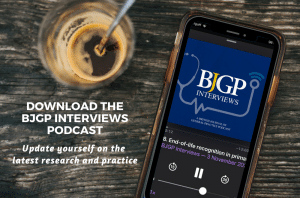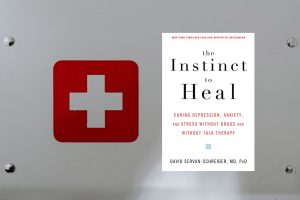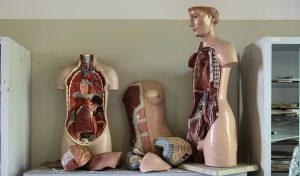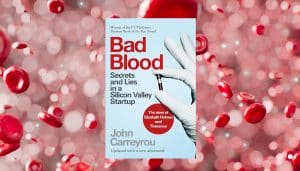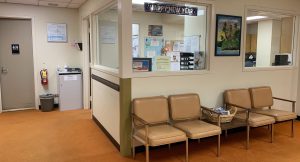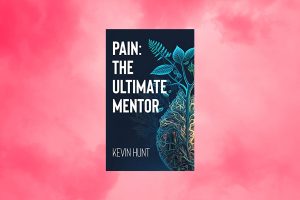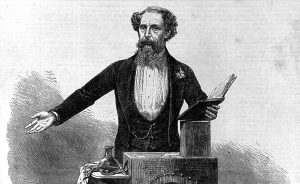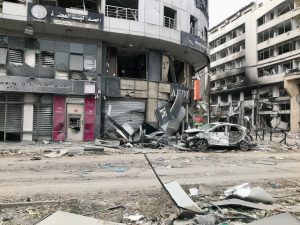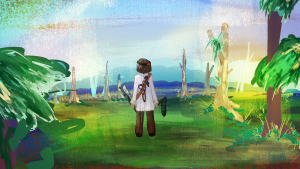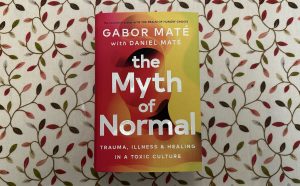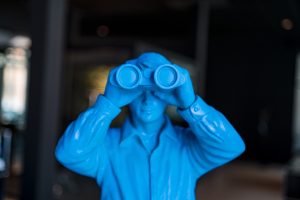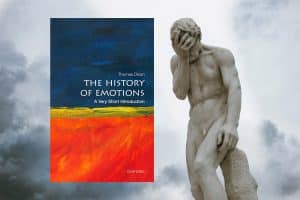Hannah Milton reflects on domestic abuse statistics in relation to men and women
At the most recent WONCA global conference in October 2023, the WONCA Women’s Working Party on Women and Family Medicine (WWPWFM) met with young doctors movements from all world regions, to discuss common themes and possible ways to work together. Amanda Howe
In this episode, we talk to Isabel Leach about the patient perspectives around end of life care.
We know (from that research) that higher continuity is associated with lower mortality rates, reduced healthcare costs, higher patient satisfaction, safer prescribing and reduced hospitalisations. But what about patient safety incidents? Nada Khan investigates
"... the overall impression is that everything in here is still very relevant today — some maybe even more so than when he first wrote it." – Elke Hausmann reviews David Servan-Schreiber's 'The Instinct to Heal' 20 years on from it's original publication.
Considering a dual role as a GP-academic? Daniel Baumgardt has some reflections to share!
The good news is that there are at least ten evidence-based ways to enhance empathy. These take little time and can pay back the moments invested (sometimes with compound interest).
Over 4 million people watched the first episode of Mr Bates against the Post Office when it screened on New Year’s Day. And suddenly things started to happen. David Misselbrook reflects on what this might mean for British medicine...
In this episode, we talk to Dr Alice Harper about the patient experience of coeliac disease diagnosis.
The Lancet declares that “generative AI is not an author”, and dictates that “these tools should only be used to improve language and readability”. But are these statements – the first a factual claim, the second a normative assertion – entirely true?
In a world of immediacy and impermanence, my two cards and lonely box of chocolates earn a particular significance. They emphasise the humanity that is still possible in General Practice despite the need to count, measure, and capture everything – a connection
Bad Blood, the 2019 book (with a new 2023 afterword) by seasoned journalist John Carreyrou, offers a deep dive into the dramatic rise and fall of Theranos, a once-promising biotech startup in the US. Self-admitted 'health-tech' enthusiast Richard Armitage reviews the book.
‘The doctor wants you to come back to discuss your results’. That’s what the receptionist said when she called me. ‘Can you tell me anything more?’ I asked, my body instantly awash with bilious panic. ‘No, sorry’ she said, before scheduling the
The introduction of new roles working alongside GPs should improve access, quality and contain costs in health care, but these new roles cannot fill the skill gaps left by the shortage of GPs. Terry Kemple looks at the evidence.
The total number of monthly appointments in general practice increased by over 30% between December 2017 and October 2023. Over this same period, the number of fully qualified FTEs fell by 5%. Richard Armitage analyses the numbers ...
Pain: The Ultimate Mentor is a deeply insightful book that reshapes our understanding of pain and its role in our lives, offering a fresh and practical perspective on managing pain ...
The links between my passion for Bronze Age Greece and working in modern-day practice have never felt tangible, until I recently took time to reflect. Look close enough and you’ll find the threads of history woven throughout medicine and, like all history,
Between May and August 2023, video/online appointments increased four-fold. Richard Armitage delves into the data ...
In a parallel reality, and in a distant multiverse and metaverse, BJGP Life has, in a Christmas charity raffle won a chance to interview Schrodinger’s Prime Minister (PM) a self confessed Artificial Intelligence (AI) nerd himself, the Right Hon Richard Turpin.
If you’re in the market for a short read to lift your spirits at Christmas, Dickens’ classic really delivers. It is the story of Ebenezer Scrooge, an old miser described in deliciously grim terms...
"We have three responses to the current crisis in Palestine. They are not unique to us but are informed by our work as GPs and connection to Palestinian primary care ... "
...while the risk of bear attacks or frostbite is substantially lower than in the popular namesake television series, GP trainees face a range of similar challenges as their TV counterparts – isolation, uncertainty, a steep learning curve, and genuine fear.
General Practice has been diluted by demand and lost all flavour. Young doctors have no taste for it and, with the NHS in free-fall, we need to now undertake some fundamental changes. John Havard and colleagues offer a gin and tonic themed
Join us for the BJGP Christmas stocking filler book club podcast!
A new study in BMJ Quality and Safety by Rebecca Payne and colleagues set out to learn why safety incidents occur in remote encounters and how they can be prevented. Here, Richard Armitage presents a concise summary with his own thoughts and
I left a job today. It was a good job with good people, which is always hard. It’s so much easier to leave when the interpersonal environment is toxic. It’s difficult when colleagues are deeply collegiate, but the structure is exploitative.
A really, really, long book, but it is hard to see what could be cut from it without losing some of the meaning. So, my one-line summary would be “Modern life is toxic to our physical and emotional health and here is
Crispin Fisher is a full time GP partner in Herefordshire. He lists what partnership entails. Readers are welcome to add, challenge or embellish his ideas in the comments.
The ARRS is a big step change for how practice teams work to manage their patients and appointments, and it’s naïve to think that implementation of such a wide-ranging scheme wouldn’t have significant impacts and unanticipated consequences for the wider workforce.
Richard Armitage investigates Medwise.ai, an 'AI tool' that claims to empower practitioners with informed decision-making, adherence to guidelines, quick access to answers, and a reduction in burden on GPs for supervision. But are these claims anywhere near the reality?
In this episode, we talk to Dr Garth Funston about pre-diagnostic patterns prior to bladder and renal cancers.
Wouldn’t it be nice to be able to download the latest updates in your sleep and go to work knowing that you were fully NHS-compliant, and without having to dodge any of those awkward questions about Segawa Syndrome? It certainly feels as
"Nexus is a powerful, brilliantly acted film [...] about the impact of COVID-19 on young people's mental health, eating-related coping strategies, and the power of social connection. I recommend sharing it with colleagues, patients, and their families."
nappropriate transfer of workload can go both ways, and it can feel highly frustrating for GPs and hospital specialists alike. But as patient care becomes increasingly fragmented, thinking locally about how to improve collaborative care might help build back those relationships across
Hyperreality describes this tendency for symbols to come adrift from what they represent, and for the distinction between the two to be lost, so that it becomes unclear which is real, and what we should expect from our dinner. We can see
In this episode, we discuss a French RCT looking at ways to better diagnose COPD in practice.
The RCGP is again also calling for a merger of the general practice and specialist registers. What’s the background to this, and what might it mean to rebrand GPs as consultants?
With the combination of a global pandemic, cost-of-living crisis and the Government’s austerity measures, over the last few years rates of DA are thought to have increased significantly. Paul McNamara and Anna de Natale reflect on how general practice should respond.
Studying the history of emotions is arguably one of the most important topics for understanding contemporary life, which becomes clear as you traverse this book ... we can use the insights ... to understand what we actually mean by emotions and trace
Domestic abuse remains a largely concealed phenomenon. It affects healthcare professionals (HCPs), especially women, nurses, and those working in low- and middle-income countries, at an alarmingly disproportionate rate. Vasumathy Sivarajasingam asks us be mindful of its causes and effects.



